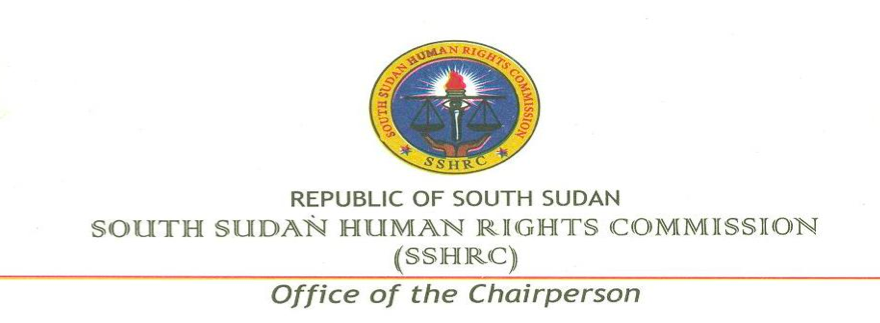The South Sudan Human Rights Commission (SSHRC) in a report released last week stated that reports of ethnic massacres in Juba touched off clashes and killings elsewhere in the country, putting the number of those killed in the initial shootings in Juba at over 600.
The commission, headed by Advocate Lawrence Korbandy, presented its report on 18 March to Speaker of the Legislative Assembly Hon. Joseph Bol Chan. The commission’s finding that 600 died in the initial killings in Juba is higher than earlier estimates made by the UN.
In the report, the commission points to ethnic targeting in most of the reported killings whether in Juba, Upper Nile, Unity, Jonglei or elsewhere: “Initial reports of ethnic massacres seem to have been the reason why at the early stage the conflict quickly assumed an ethnic dimension although the two fighting forces deny this.”
“It is this ethnic dimension of the conflict which is most worrying and if not resolved could lead to national calamity with genocide a possibility given the fact that both the Nuer and Dinka are large groups with heavily armed groups,” it adds.
After the initial crisis within the presidential guards on the night of 15 December, “a section of the security forces began targeting the Nuer living in Juba. It is generally believed that some elements in the security forces went to Nuer homes around Juba and rounded up the Nuer and killed them,” reports SSHRC.
“An eyewitness reported seeing entire families being killed when Nuer soldiers were found hiding in those homes. Eyewitness account also sighted some Dinkas in uniform carrying out house-to-house search of the Nuer homes, and victimizing the occupants,” it adds.
It concluded, “The Commission team did establish that between 16th and 18th December over 600 people mainly Nuer ethnic group were killed and more than 800 wounded in Juba and its suburbs.”
Similarities to UN report
SSHRC’s report relates essentially the same narrative as that of the UN interim rights report released by the Human Rights Division of the UN Mission in South Sudan in mid-February.
The UN cited eyewitness accounts as evidence of at least 225 killings of civilians, mainly of Nuer origin, in individual incidents in Mia Saba and New Site on 16 December, with more killings continuing on a “daily basis’ until 18 December.
“House-to-house searches for civilians of Nuer origin were conducted in areas near the armory that were known to be populated with people of Nuer origin – Mia Saba, Mangaten, Eden, Lologo, and Jebel – as well as in other parts of Juba,” the UN reported.
“Survivors and witnesses reported that civilians of Nuer origin were killed at police stations, in the streets as they tried to flee, or in their homes and residential compounds. In some cases, civilians of Nuer origin were reportedly tied to each other in a line before being forced to walk to another location to be killed,” adds the UN report dated 21 February.
Ethnic killings elsewhere in the country followed these murders, according to the South Sudan Human Rights Commission. In one case, for example, SSHRC officers were told by chiefs and local officials in mid-February that at least 240 civilians were killed in Baliet County by rebels.
“It is important to note here that Baliet County of Upper Nile State is mainly inhabited by Dinka ethnic community and that rebels in Upper Nile are Nuer dominated and therefore the killings could have had an ethnic dimension,” adds SSHRC.
Commission’s recommendation
The human rights commission noted, “the present conflict has rekindled and inflamed ethnic and tribal hatred to certain extent, to xenophobic levels particularly amongst the two numerically big tribes, the Nuer and the Dinka.”
“Though consistently denied and rejected by politicians, leaders or propagandists of both sides of the conflict, this is a reality that the Commission has noted to be obtaining on the ground. This reality is what has created the ethnic dimension of the conflict and cannot be wished away.”
“It is extremely important therefore, that both parties to conflict admit to this reality and that it is a factor that requires attention with a view to finding a suitable solution through the negotiation process,” recommends the report.
Related:
UN report on the killings in Juba, South Sudan (26 Feb.)




